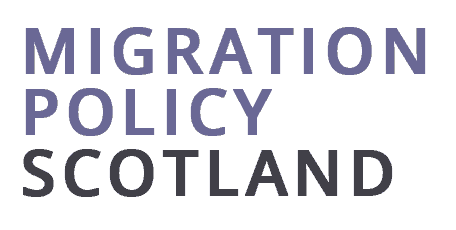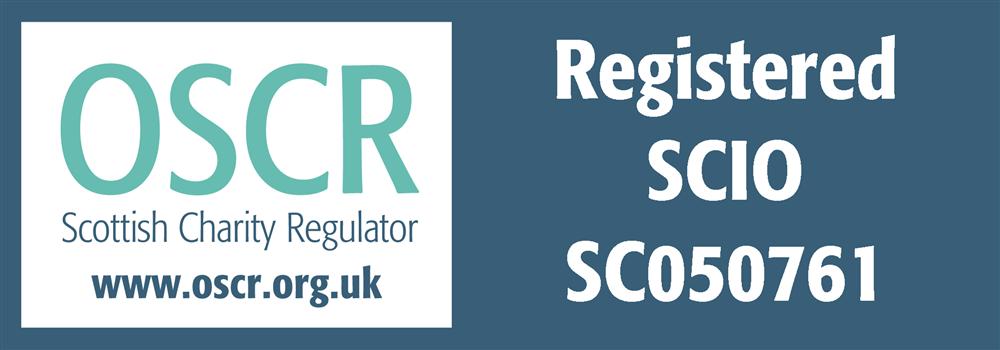Blog by Hana Davis, MPS Diversity in Policymaking Intern
Migration Policy Scotland facilitates open and constructive dialogue about the complex and cross-cutting issues migration impacts. On Friday 16th September 2022, that took the form of this event: EU Nationals in Scotland: Experiences, Needs and Support. Hana Davis, MPS’ first ‘Diversity in Policymaking’ intern reflects on the event and her experience delivering it below. An MPS factfile on EU Nationals is now also available.
As MPS’ Diversity in Policymaking Intern, much of my work involved preparing this event, including research on an associated fact file, so I was excited to see it come together. The event consisted of two panels, followed by Q&A. A coffee break allowed valuable time for continued conversations and networking. The event was well-attended, with almost 50 delegates from over 25 public and third sector organisations present. The atmosphere felt sociable and receptive to new ideas and collaborative thinking.
Dr Sarah Kyambi, MPS Founder and Director, opened the event foregrounding the recent changes and uncertainties affecting EU nationals and the particular bearing this has on Scotland. Scotland’s migration story involves two decades of significant arrivals from the EU, to the extent that the population of EU nationals now makes up the majority (58%) of non-UK nationals living in Scotland. This is proportionately larger than in almost all other UK regions (Northern Ireland being the exception). This MPS event created a space for critical discussions about the changing context and its implications for this group of migrants, and the organisations that support them. Our expert panels offered insight into the needs and experiences of EU nationals, and those working alongside them, during a period of remarkable change including Brexit and the Covid pandemic.
The first panel, which focused on the landscape of advice and support for EU nationals after Brexit, was chaired by Professor Rebecca Kay, who recently joined MPS as Senior Researcher. It featured a fantastic line-up of speakers including Marley Morris from The Institute for Public Policy Research (IPPR), JustRight Scotland’s Francesca Sella, Agnieszka Morrison from Feniks and Tony Kenmuir, Advice Services manager at Citizens’ Advice Scotland (CAS). The panellists discussed the evolving needs of EU nationals post the EU Settlement Scheme deadline, which passed on 30 June 2021.
Regarding mental health provision for EU nationals impacted by Brexit, Agnieszka Morrison raised significant concerns regarding accessibility. She advocated strongly for more culturally aware and language appropriate services for the Polish community in Scotland. On a legal level, it became clear that organisations such as JustRight Scotland and CAS were seeing heightened demand for a new phase of legal advice for more complicated cases, as demand for general EUSS registration tails off. As Marley Morris outlines, the evolving needs of EU nationals post-EUSS now also include advice on demonstrating rights, (re-)applying for settled and pre-settled status, and making late applications. Francesca Sella stressed the importance of specialist legal support, particularly when advising on complex family cases, and supporting applications from vulnerable groups and family members entering Scotland without any knowledge of EUSS and its requirements.
The second panel, chaired by MPS Trustee Grace McGill, lent focus to the lives and experiences of EU nationals during Covid, considering what lessons can be learnt for the future. The expert panel consisted of Mariña Fernández-Reino, Senior Researcher at Migration Observatory, Prof Rebecca Kay, University of Glasgow, on findings from the Language Learning and Migrant Integration project, Jenni Keenan from PKAVS, and Prof. Sharon Wright and Dr Anna Gawlewicz, University of Glasgow, on findings from the Migrant Essential Workers project (MEW).
Mariña Fernández-Reino presented research into public attitudes towards immigration during the pandemic, showing how the perceived ‘essentialness’ of an occupation can condition public perceptions of migrant workers. Similarly, Sharon Wright and Anna Gawlewicz considered the ways in which the pandemic had highlighted the contributions of migrant essential workers to Scottish society, whilst also exacerbating their insecurities vis-à-vis employment, social security, legal status and health. Rebecca Kay highlighted the need to better support language learning amongst EU nationals particularly given its crucial role supporting settlement. She outlined potential benefits to maintaining some digital learning post-Covid, including its ability to reach learners in more rural areas as well as highlighted the need for more specialist ESOL provision that was targeted towards the needs of different groups. Finally, Jenni Keenan’s ‘Picture of a Pandemic’ shed light on experiences of the pandemic amongst minority ethnic communities in Perth and Kinross. She underlined a clear appetite for more intensive support concerning employability, social security and mental health services for EU nationals. This echoes concerns shared by other panellists about the probable impacts of the cost-of-living crisis on the provision of a sustainable third sector response.
Overall, the event explored a wealth of issues surrounding the experiences, needs and support of EU nationals in a rapidly changing environment. It brought together researchers, practitioners, and policy makers to engage in a conversation about the infrastructure needed to provide good quality support to a diverse group of migrants living in Scotland. As my first event with MPS, it was both motivating and inspiring to see experts from different organisations and strands of work coming together to discuss such a relevant and crucial topic. You can access recordings of the panels and the speakers slides on our website.
You can watch the panel presentations on Youtube:
Panel 1: https://youtu.be/JFcVdnk2Lyg
Panel 2: https://youtu.be/2WYZpXb7FY0
To hear about future MPS events subscribe to our Monthly Updates here. Find out more about the MPS ‘Diversity in Policymaking’ internship programme here
The views expressed in this blog are those of the author(s) and do not necessaity reflect the position of Migration Policy Scotland.


